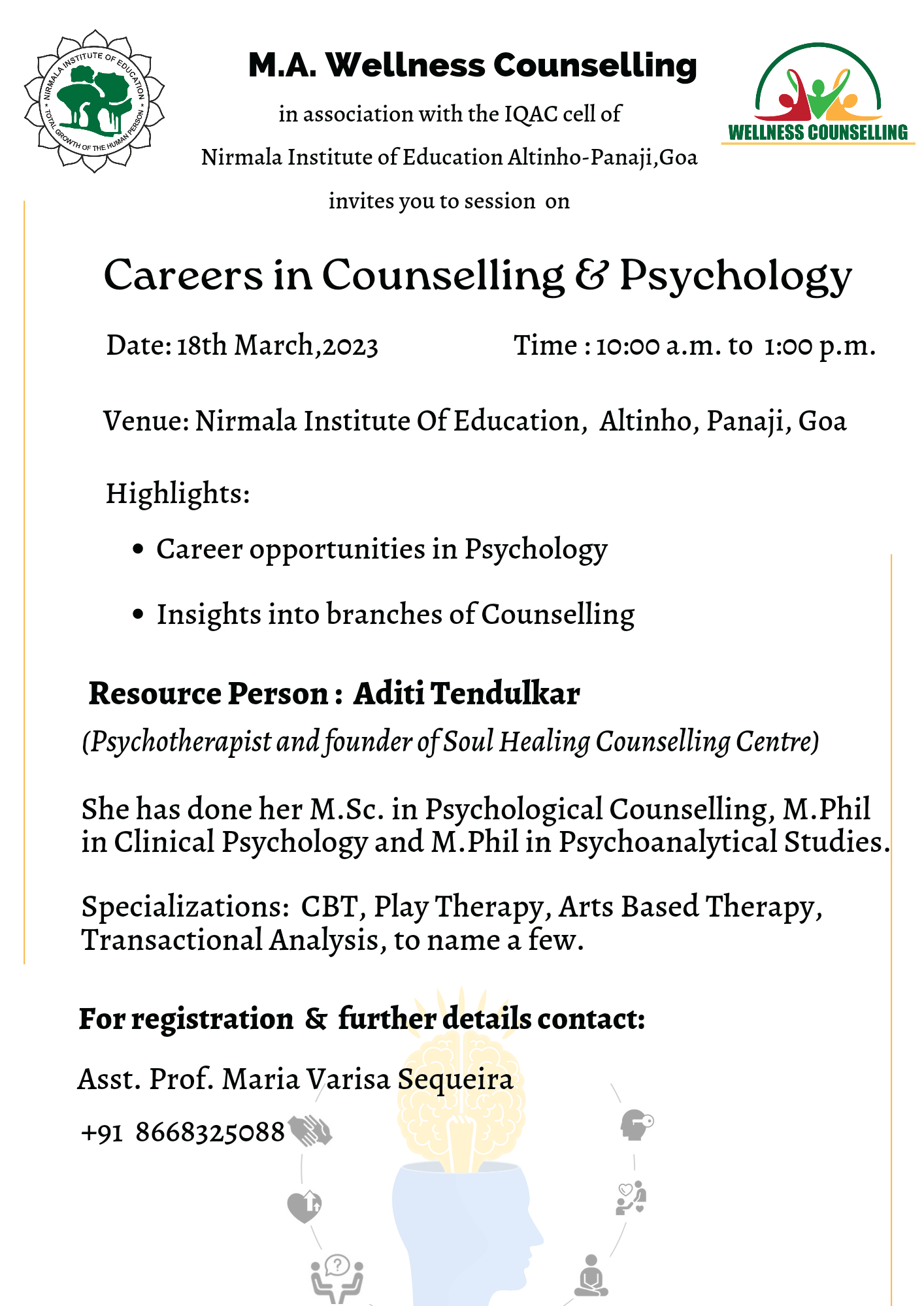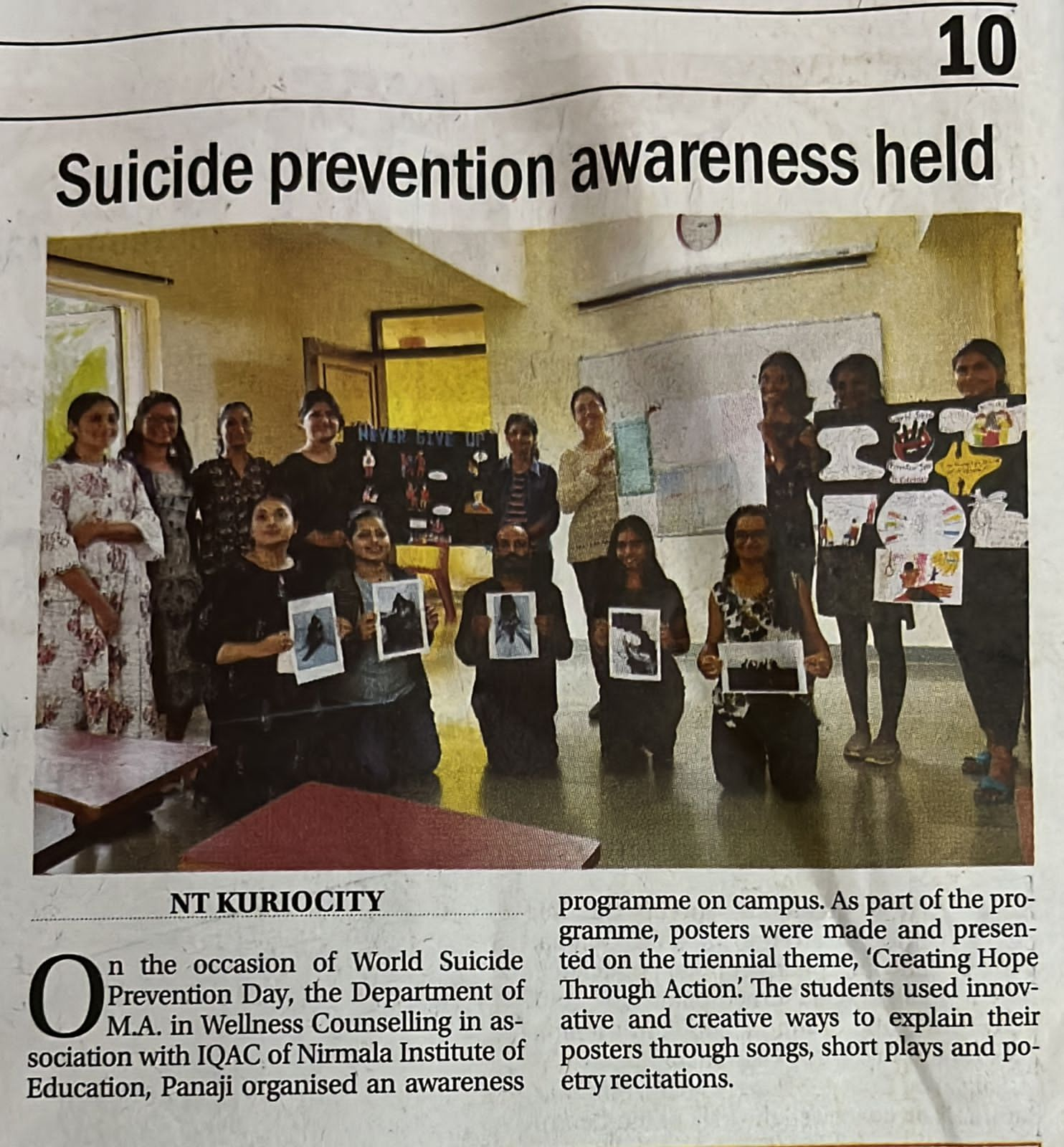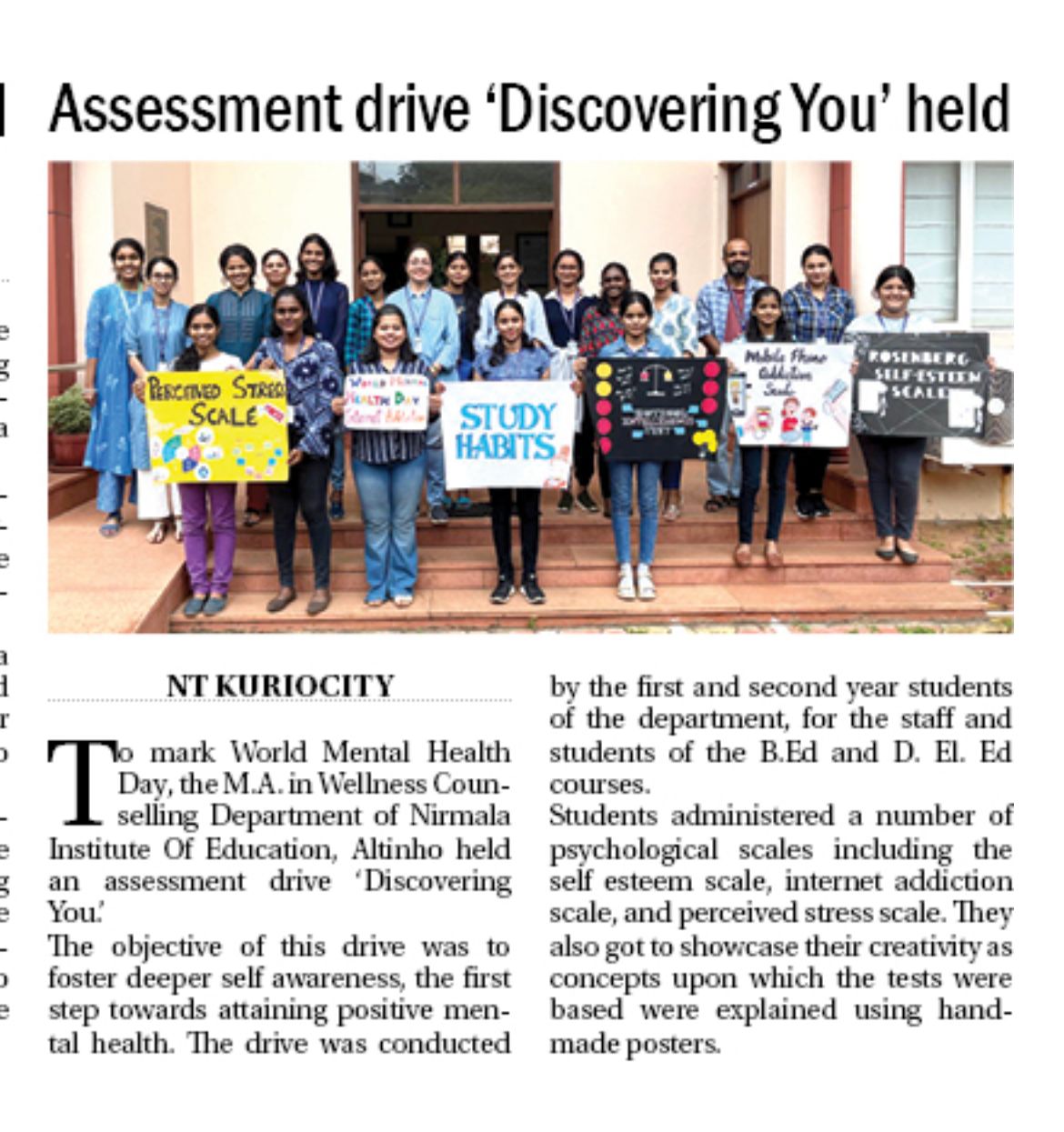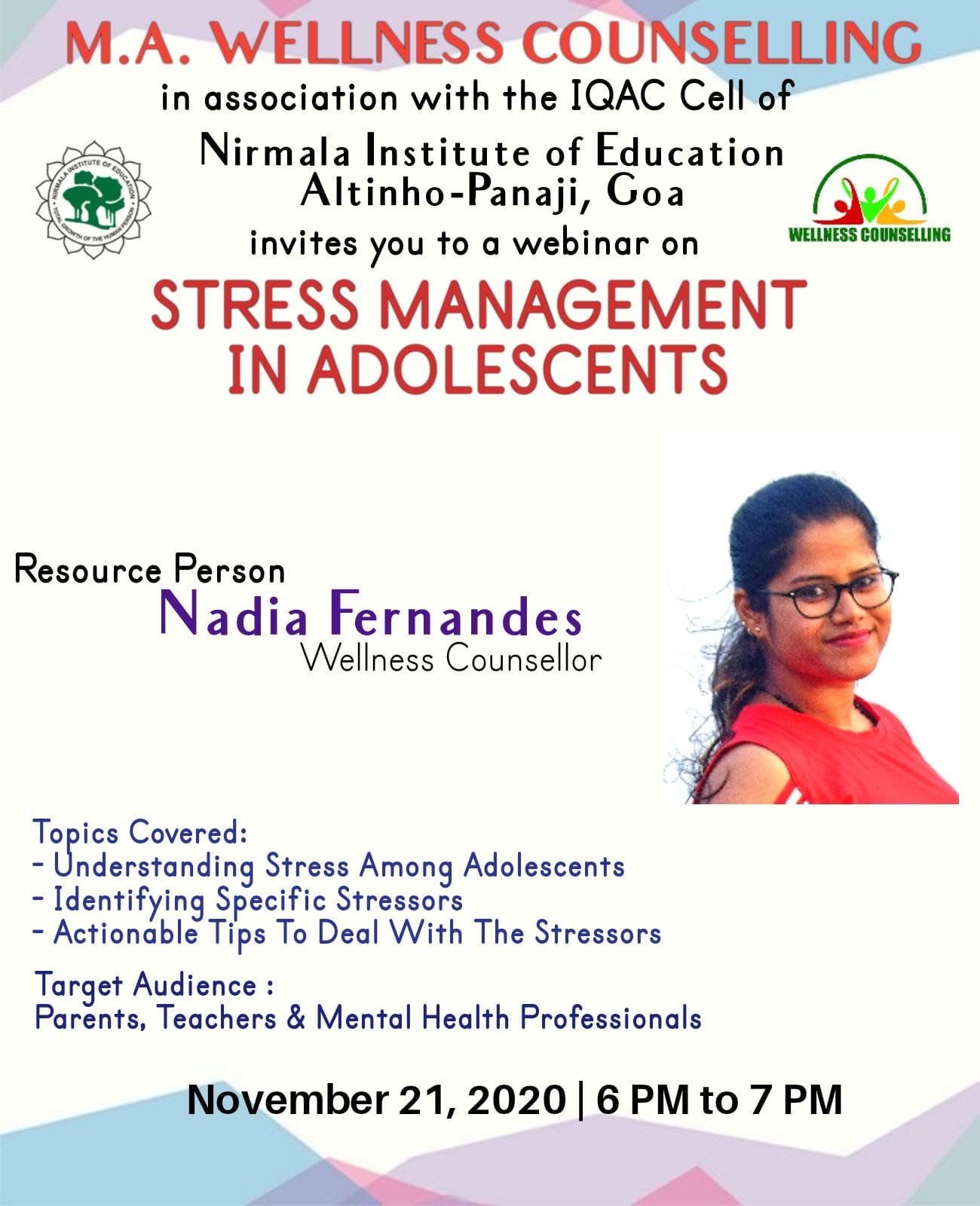FAQ’s
- How is Wellness Counselling different from the Clinical or Counselling Psychology degree offered elsewhere?
Wellness Counsellors are majorly interested in the concept of strengths-based psychological wellness rather than an illness-diagnosis. Aside from this basic approach, this degree also differs significantly in terms of the papers it covers and the modes of learning it employs. In most other courses, the professor is the one who imparts knowledge. Here, however we employ a lateral approach which stresses peer interactions just as much as student-professor interactions.
- Will I be qualified to practice as a counsellor after this course?
Yes, absolutely. Since the students are thoroughly trained in the counselling skills, they are well-qualified to adapt to any counselling environment.
- Where can Wellness Counsellors be employed? What is the scope of this degree?
The Wellness Counselling is a course that gives its students an in-depth understanding about several niches. Thus, Wellness Counsellors are suited to work in any area that comes under the scope of traditional counselling. We have had a number of alumni working as counsellors, in schools, colleges, de-addiction centers, NGO’s, psycho-oncology and even in their own private practice.
- Is this course available for distance-learning?
No. This program is available in the offline mode only since it involves practical training.
- How does Wellness Counselling fit in with other forms of therapy?
Considering that Wellness Counselling is a strengths-based approach, it can fit in with almost any other form of therapy. Therapies like CBT , REBT, MBCT, supplemented with this approach will only improve the client experience and growth. Furthermore, the papers here such as marriage counselling, grief counselling or even school counselling among others, are all about adapting the strengths-based approach to the setting one is in.









